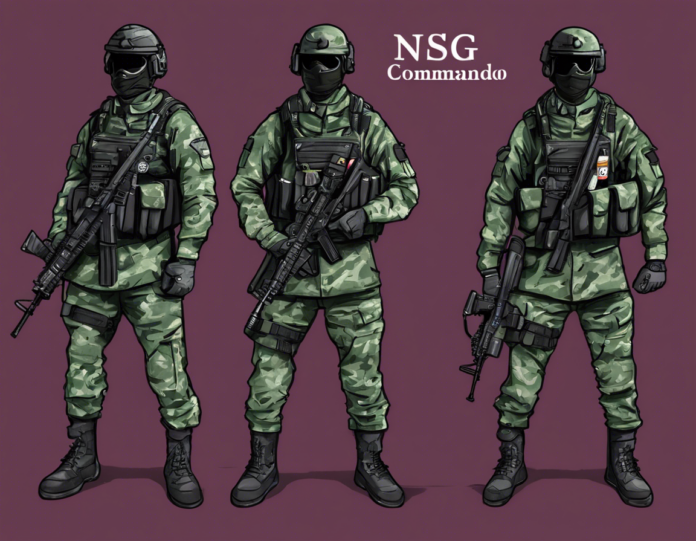Introduction
National Security Guard (NSG) Commandos are one of the most elite counter-terrorism forces in the world. Formed in 1984 in response to increasing instances of terrorism in India, the NSG is a specialized force that is trained and equipped to handle high-risk situations with precision and skill. In this article, we will delve into the world of NSG Commandos, exploring their training, capabilities, and the role they play in protecting the nation.
The Origins of NSG
The NSG was established in 1984 following the Operation Blue Star in Amritsar and the assassination of the then Prime Minister, Indira Gandhi. The force was designed to be a specialized counter-terrorism unit that could respond swiftly and effectively to terrorist threats. Over the years, the NSG has evolved into a highly trained force that is capable of handling a wide range of security challenges.
Training and Selection
Becoming an NSG Commando is no easy feat. Prospective candidates undergo a rigorous selection process that includes physical fitness tests, marksmanship tests, psychological evaluations, and interviews. Once selected, candidates undergo an intense training program that covers a wide range of skills, including urban warfare, close-quarter combat, explosive ordnance disposal, and hostage rescue. The training is designed to push candidates to their limits and ensure that only the best of the best make it through.
Capabilities and Equipment
NSG Commandos are equipped with some of the most advanced weaponry and equipment available. From assault rifles and sniper rifles to breaching charges and night vision goggles, the NSG is outfitted to handle any situation. The commandos are also trained in hand-to-hand combat, martial arts, and tactical driving, giving them the versatility to adapt to any scenario.
Operations and Missions
The NSG has been involved in numerous high-profile operations over the years, including the 2008 Mumbai attacks and the 2016 Pathankot attacks. In these situations, NSG Commandos have displayed exceptional bravery and skill, neutralizing terrorists and rescuing hostages with precision and speed. The force is often deployed in conjunction with other security agencies, showcasing their ability to work in tandem with different organizations.
Global Recognition
The NSG Commandos are widely regarded as one of the best counter-terrorism forces in the world. Their professionalism, training, and operational effectiveness have earned them praise from security experts and allied nations. The force regularly participates in joint exercises with other special forces units from around the globe, showcasing their capabilities on an international stage.
Conclusion
In conclusion, NSG Commandos are a vital component of India’s security apparatus. Their specialized training, advanced equipment, and operational experience make them a formidable force against terrorism. As the threat of terrorism continues to evolve, the NSG stands ready to protect the nation and its citizens with courage and dedication.
Frequently Asked Questions (FAQs)
Q: What sets NSG Commandos apart from other special forces units?
A: NSG Commandos undergo specialized training in counter-terrorism and hostage rescue, making them highly skilled in handling high-risk situations.
Q: How are NSG Commandos deployed during operations?
A: NSG Commandos are typically deployed in small teams to swiftly neutralize threats and rescue hostages in a coordinated manner.
Q: Can civilians join the NSG?
A: No, the NSG is a specialized force that recruits individuals from existing security agencies such as the army and paramilitary forces.
Q: What is the role of NSG Commandos during a terrorist attack?
A: NSG Commandos are tasked with neutralizing terrorists, rescuing hostages, and securing the area to prevent further attacks.
Q: Are NSG Commandos trained in non-lethal methods of combating terrorism?
A: Yes, NSG Commandos are trained in a variety of techniques, including negotiation and non-lethal weapons, to resolve situations peacefully whenever possible.
